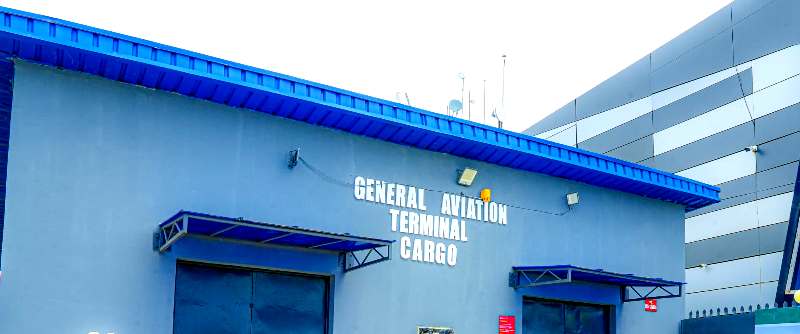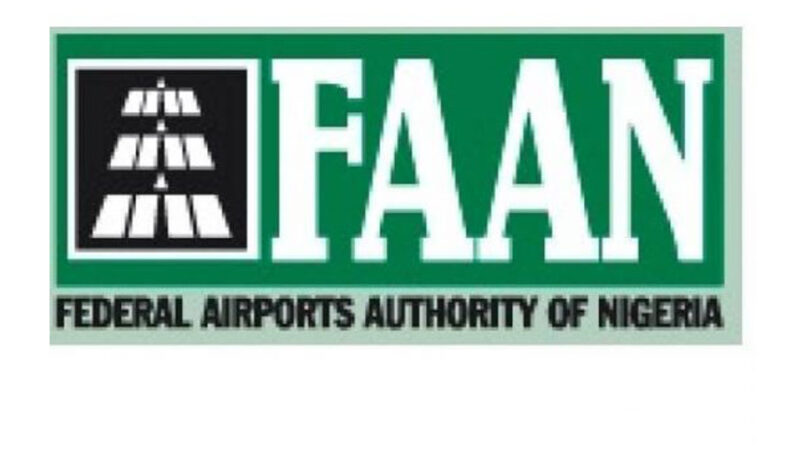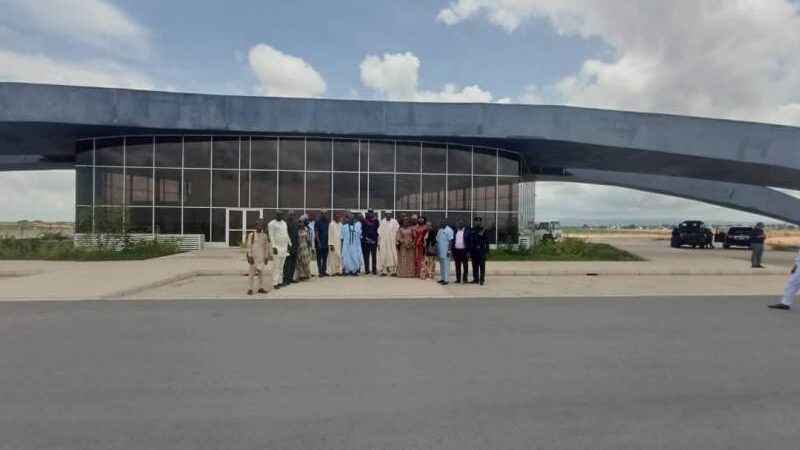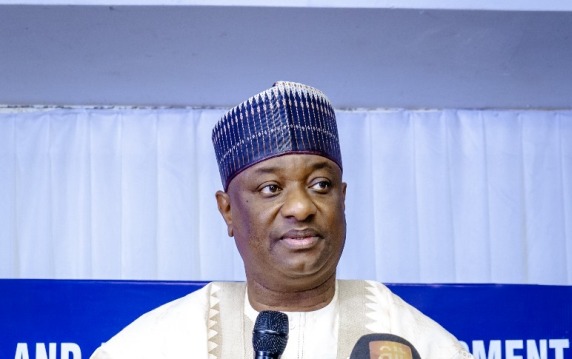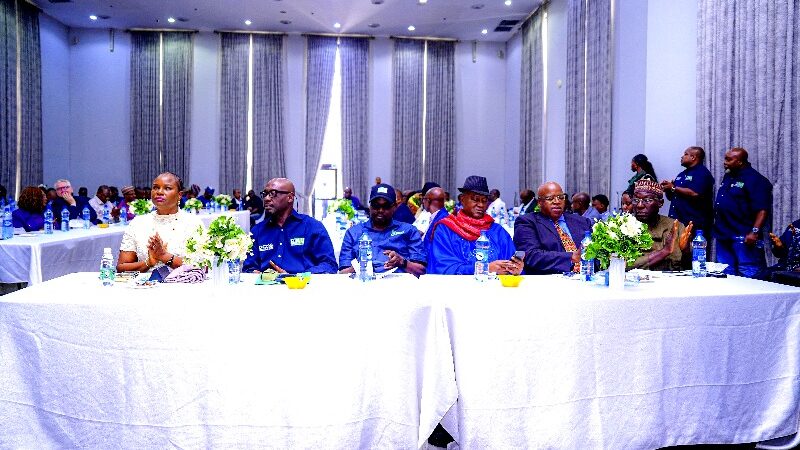Festus Keyamo: A Visionary Leader Revitalizing Nigeria’s Aviation Industry

Festus Keyamo, the Honourable Minister of Aviation and Aerospace Development, has emerged as a beacon of hope and an emblem of visionary leadership within Nigeria’s aviation industry. As someone who has had the privilege of working closely with him, I am inspired by his relentless dedication to revamping the aviation sector and his unwavering commitment to leaving a lasting legacy that will benefit generations to come.
From the moment he assumed office, Festus Keyamo made it clear that his tenure would be defined by a transformative vision. He understood that the aviation industry in Nigeria was at a crossroads, facing both significant challenges and tremendous opportunities. Rather than being daunted by the obstacles, Keyamo embraced them as opportunities to drive meaningful change.
One of the most striking aspects of Minister Keyamo’s leadership is his holistic approach to aviation development. He recognizes that the success of the industry hinges not on isolated interventions but on a comprehensive strategy that addresses the sector’s multiple facets. His vision encompasses everything from infrastructure development to policy reform, human capital investment, and stakeholder engagement.
Keyamo’s commitment to infrastructure development is perhaps the most visible aspect of his tenure. He understands that modern, efficient, and well-maintained airport infrastructure is the bedrock of a thriving aviation industry. His tenure has been marked by a series of ambitious projects aimed at upgrading Nigeria’s airport facilities, bringing them in line with international standards — from runways and airfield lighting to improved Air Traffic Management Systems.
Under his leadership, significant investments have been made in the modernization of key airports across the country. These upgrades are not just about improving aesthetics; they are about enhancing the overall functionality and safety of these airports. Minister Keyamo has been a staunch advocate for adopting state-of-the-art technologies that improve passenger experience, streamline operations, and ensure the highest levels of safety and security. For instance, the introduction of advanced air navigation systems, baggage handling systems, and security screening technologies has revolutionized the operational efficiency of Nigeria’s airports. These developments are critical, not just for improving the user experience but also for positioning Nigeria as a competitive player in the global aviation.
While infrastructure development is crucial, Minister Keyamo recognizes that it must be underpinned by robust policies and regulations that foster sustainable growth. His tenure has been characterized by a series of policy reforms aimed at creating a more enabling environment for the aviation sector to thrive. A key aspect of these reforms has been the streamlining of regulatory processes to reduce bureaucratic bottlenecks that have historically stifled the growth of the aviation industry. Minister Keyamo has worked tirelessly to ensure that the regulatory framework governing the industry is not only robust but also flexible enough to adapt to the changing dynamics of the global aviation sector.
Moreover, his efforts to harmonize Nigeria’s aviation policies with international best practices have significantly boosted investor confidence. By aligning local regulations with global standards, Minister Keyamo has opened the door for increased foreign investment in Nigeria’s aviation industry. This is a critical step toward ensuring that the sector is well-capitalized and equipped to meet the demands of a rapidly growing economy.
Festus Keyamo’s commitment to human capital development is another cornerstone of his tenure as Minister of Aviation and Aerospace Development. He understands that the aviation industry is only as strong as the people who work in it. To this end, he has prioritized training and capacity building for aviation professionals, ensuring that they have the skills and knowledge needed to excel in a highly competitive industry.
Under his leadership, there has been a renewed emphasis on professional development programs for air traffic controllers, engineers, AVSEC, ARFF, and other key personnel within the aviation sector. These programs are designed not only to enhance technical skills but also to foster a culture of excellence and continuous improvement. At the Federal Airports Authority of Nigeria, for instance, the Managing Director, Mrs Olubunmi Kuku, inspired by the Minister’s dynamic human capital development programs, has initiated the Flight to Excellence culture change programme, targetted at orienting all staff of the Agency on the desired culture of efficiency, productivity and excellence. The outcome has been strikingly remarkable.
Minister Keyamo’s focus on human capital extends beyond just technical training. He is also a strong advocate for leadership development within the industry. By nurturing the next generation of aviation leaders, he is ensuring that Nigeria’s aviation sector will continue to thrive long after his tenure as minister has ended.
One of the hallmarks of Minister Keyamo’s leadership is his commitment to stakeholder engagement. He believes that the success of the aviation industry depends on the collaborative efforts of all stakeholders, including government agencies, airlines, regulatory bodies, and the private sector.
Minister Keyamo’s open-door policy has been instrumental in fostering a spirit of partnership and cooperation within the industry. He has made it a priority to engage with all stakeholders regularly, ensuring that their voices are heard and that their concerns are addressed. This approach has helped to build trust and confidence within the industry, creating a more conducive environment for growth and innovation. Moreover, his efforts to engage with international stakeholders have also been noteworthy. Minister Keyamo has actively sought to strengthen Nigeria’s ties with global aviation bodies and organizations, ensuring that the country remains an active participant in the global aviation community. These efforts have not only enhanced Nigeria’s reputation on the international stage but have also opened up new opportunities for collaboration and investment.
Another defining feature of Minister Keyamo’s tenure has been his ability to forge strategic alliances within the industry. He understands that the challenges facing Nigeria’s aviation sector are too complex to be addressed by any single entity. Therefore, he has made it a priority to build partnerships with key players both within and outside the industry. One of the most significant examples of this is his collaboration with the private sector. Minister Keyamo has been a strong proponent of public-private partnerships (PPPs) as a means of driving innovation and investment in the aviation industry. By leveraging the expertise and resources of the private sector, he has been able to accelerate the pace of development within the industry.
These partnerships have been instrumental in driving some of the most ambitious projects in Nigeria’s aviation history. From airport modernization initiatives to the development of new aviation hubs, Minister Keyamo’s strategic alliances have helped to catalyze growth and development across the sector.
Minister Keyamo’s tenure has not been without its challenges. The global aviation industry has faced unprecedented disruptions in recent years, from the COVID-19 pandemic to economic downturns and geopolitical tensions. However, Festus Keyamo has demonstrated remarkable resilience in navigating these challenges, ensuring that Nigeria’s aviation sector remains on a steady path to recovery and growth.
His proactive approach to crisis management has been instrumental in mitigating the impact of these disruptions on the industry. From implementing stringent health and safety protocols at airports to securing financial and diplomatic support for struggling airlines, Minister Keyamo has shown that he is not only a visionary leader but also a pragmatic one.
Moreover, his efforts to diversify the aviation sector have been particularly noteworthy. Recognizing the need to reduce Nigeria’s dependence on traditional revenue streams, Minister Keyamo has championed initiatives aimed at developing new sources of income for the industry. These include efforts to boost tourism, cargo services, and other ancillary services that are critical to the long-term sustainability of the aviation sector.
As we reflect on the past year of Minister Festus Keyamo’s tenure, it is clear that he is a man with a mission. He is not content with merely maintaining the status quo; he is driven by a desire to make a difference. His efforts to revitalize Nigeria’s aviation industry are not just about addressing the challenges of today; they are about creating a future where Nigeria’s aviation sector can stand tall on the global stage.
Festus Keyamo’s leadership is characterized by a hands-on approach, a deep sense of responsibility, and an unwavering commitment to excellence. He is a leader who understands that the aviation industry is a critical component of Nigeria’s socio-economic fabric, and he is determined to ensure that it reaches its full potential. In Festus Keyamo, Nigeria has found a minister who is not only passionate about aviation but also about the broader goal of national development. His vision for the aviation industry is one that is deeply rooted in the belief that a strong and vibrant aviation sector is essential for Nigeria’s economic prosperity.
As we look to the future, there is no doubt that Festus Keyamo will continue to leave his footprints in the sands of time. His legacy will be one of innovation, resilience, and a steadfast commitment to the progress of Nigeria’s aviation industry. For his dedication and leadership, Nigeria owes him a debt of gratitude, and we can be confident that the aviation sector is in capable hands under his watch.
Festus Keyamo’s tenure as the Honourable Minister of Aviation and Aerospace Development has been nothing short of exemplary. He has brought a fresh perspective, a strategic vision, and a passion for excellence to the aviation industry, setting it on a path of sustainable growth and development. His work is a testament to the power of visionary leadership, and his legacy will undoubtedly endure for years to come.
By Henry Agbebire, Executive Director, FAAN

